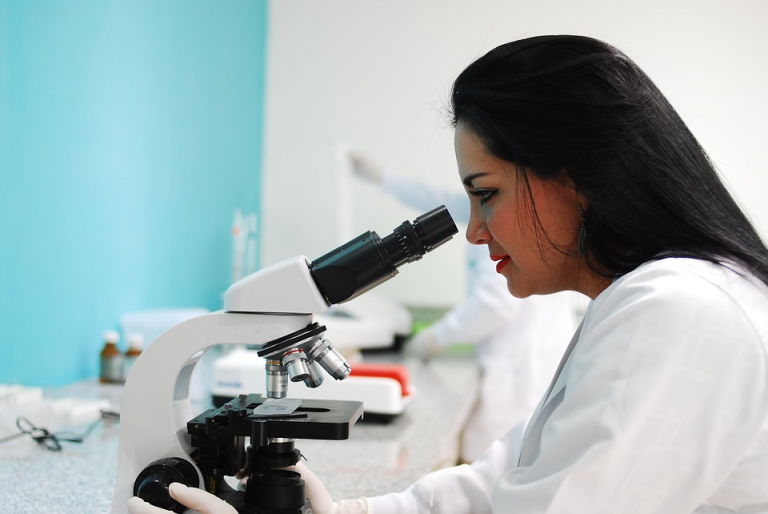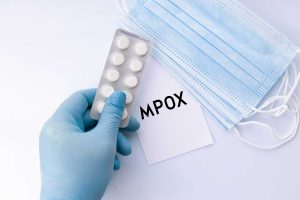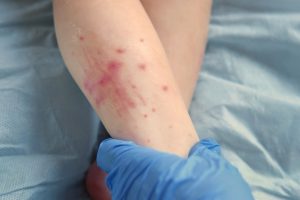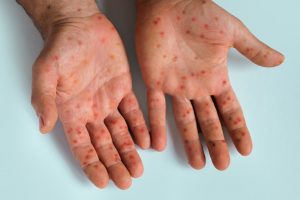Updated 07 January 2021. The Network for Genomics Surveillance in South Africa (NGS-SA), which includes the National Institute for Communicable Diseases (NICD), University of KwaZulu Natal (UKZN), University of Cape Town (UCT) and Stellenbosch University (SUN), has been monitoring changes in SARS-CoV-2, the virus which causes COVID-19, since March 2020.
NGS-SA recently detected a new lineage (also erroneously referred to as a new strain) of SARS-CoV-2 in the Eastern Cape, Western Cape and KwaZulu-Natal Provinces. This lineage, which comprises a group of slightly different variants with between 10-20 mutations, was not previously seen in South Africa prior to September 2020 but is now being detected in several provinces.
What does this mean?
SARS-CoV-2, like all viruses, evolves over time especially when it spreads and infects large numbers of people. Between March and September 2020, analysis of over 2,000 viral genetic sequences from 8 of the 9 provinces showed that this virus mutated relatively slowly. However, from late September 2020, it accumulated several new mutations including some that may impact on how the virus spreads and responds to antibodies.
Scientists at the NICD, UKZN and UCT, collaborating with international scientists, are working on testing what impact these mutations have on diagnostic tests, virus growth, sensitivity to vaccines, severity of illness, virus transmission and risk of re-infection.
What is currently known:
- One of these mutations (N501Y), also found in the UK lineage increases binding to the human cell receptor, which could make it easier for the virus to infect people.
- Two other mutations (K417N and E484K) reduce virus sensitivity to some antibodies, meaning that these antibodies may not be as effective against this new mutated lineage, compared to the original (un-mutated) lineages.
What are the implications?
Current data suggest that the mode of transmission and clinical presentation of the new lineage do not differ from other lineages of SARS-CoV-2. Therefore at this time the recommendations for prevention of transmission and treatment remain unchanged. The public is encouraged to remain vigilant and to continue to follow COVID-19 protocols by wearing masks (which covers the nose, mouth and chin), regular washing or sanitising of hands, cleaning surfaces frequently, and maintaining 1.5m distance from others. These interventions continue to be effective in preventing the spread of all SARS-CoV-2 viruses. People with symptoms suggestive of SARS-CoV-2 should urgently seek medical care to find out if they should be tested and self-isolate until results are available.
Will these mutations affect diagnostic test sensitivity?
The current mutations in the new lineage detected in South Africa should not affect PCR testing sensitivity. The mutated lineage is detected using South Africa’s current repertoire of real-time PCR tests. In addition, the tests typically detect at least two or three different SARS-CoV-2 gene targets, which serves as a backup in the case of a mutation arising in one. The new lineage is currently not thought to affect antigen and antibody tests, but this is being carefully monitored on an ongoing basis as the virus continues to evolve.
Will these mutations impact the efficacy of vaccines?
Scientists are concerned about the possibility that these mutations may make vaccines less effective. The mutations detected in the new lineage may result in reduced virus sensitivity to vaccine-elicited antibodies. Staff at the NICD and elsewhere are testing blood samples from vaccine trial participants to answer the question of whether the new lineage is less sensitive to antibodies triggered by vaccines. However vaccines elicit multiple antibodies that target different parts of the virus and so any effect is likely to be partial.
It is also not known whether reduced virus sensitivity to vaccine-elicited antibodies, if detected, will result in the vaccine being less effective, as many SARS-CoV-2 vaccines elicit high levels of antibodies in volunteers, and the threshold for protection is not yet known. South African vaccine trials, which are ongoing, therefore remain essential to provide data on whether these vaccines provide protection against both the old lineages and the new lineage.
Does this mean that people who were infected previously may be infected again by the new lineage?
We do not know to what extent people previously infected by the old lineages are at risk of being re-infected with the new lineage. However, the fundamental ways in which we protect ourselves, through masks, regular washing or sanitising of hands, cleaning of surfaces, and social distancing remain the best defense against all SARS-CoV-2 viruses, including the new lineage.
Do people infected with the new SARS-CoV-2 lineage show a different disease course
The majority of people with symptomatic SARS-CoV-2 infection show mild to moderate disease. At this stage there is no evidence to suggest that those infected with the new lineage show a different disease course but this is being actively investigated.





